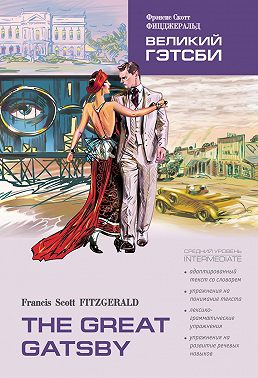Про "Великого Гэтсби" я слышала по фильму. Помню, что его интерпретация мне даже пришлась по душе. Случайно вспомнив, решила и книгу прочитать( как говорится - книга зачастую лучше фильма).
Читала ее не скажу, что не отрываясь, т.к. сюжет мне уже был известен, но книга по правде довольно интересная, хотя и для нашего времени морали сюжета слишком банальные:
- Бедные мальчики не ровня богатым девочкам.
- Даже если ты влился в круг богатых(т.е. из грязи в князи) это не придаст уважения и почета в кругу буржуа.
- Чем больше денег, тем больше ты одинок.
Сама персона Гэтсби противоречивая. Ты до самого конца не понимаешь его поступки, действия. Он остается закрытой книгой в красивом оформлении.
Его чувств к Дейзи я так и непоняла. Были ли они настоящие, направленные на ее саму или к той роскоши в которой она родилась и жила? Мне кажется она была лишь той стеной, которая соединяла его, бедного молодого человека Джимми Гетца, с миром шампанского, лоска и джаза.
Вообщем книгу прочитать можно, посмотреть на эпоху джаза. Лично я ничего нового в этой книге для себя не открыла.

- Главная
- Прочая образовательная литература
- ⭐️Фрэнсис Фицджеральд
- 📚«The Great Gatsby / Великий Гэтсби. Книга для чтения на английском языке»


Отсканируйте код для установки мобильного приложения MyBook
Премиум
The Great Gatsby / Великий Гэтсби. Книга для чтения на английском языке
172 печатные страницы
Время чтения ≈ 5ч
2019 год
16+
Эта книга недоступна.
Узнать, почемуВ данном издании представлена адаптированная и сокращенная версия романа Ф. С. Фицджеральда «Великий Гэтсби» – многократно экранизированной знаковой книги «эпохи джаза», 1920-х годов. К каждой главе текста даны лексические и культурологические комментарии. Упражнения направлены на отработку различных навыков речевой деятельности, на закрепление нового лексического материала, а также на освоение правильного произношения. Работа над ответами на вопросы и выполнение заданий на пересказ позволят осуществить контроль понимания текста. В книге содержится словарь. Пособие адресовано учащимся старших классов школ с углубленным изучением языка, студентам филологических факультетов, а также всем, кто изучает английский язык самостоятельно.
читайте онлайн полную версию книги «The Great Gatsby / Великий Гэтсби. Книга для чтения на английском языке» автора Фрэнсис Фицджеральд на сайте электронной библиотеки MyBook.ru. Скачивайте приложения для iOS или Android и читайте «The Great Gatsby / Великий Гэтсби. Книга для чтения на английском языке» где угодно даже без интернета.
- Объем:
- 309716
- Год издания:
- 2019
- Дата поступления:
- 10 июня 2019
- ISBN (EAN):
- 9785992510386
- Время на чтение:
- 5 ч.
Поделиться
Obla4no
Оценил книгу
Поделиться
О проекте
О подписке
Другие проекты